A Little Background on Encryption
Before we look at some specific apps, here’s a brief explainer. Essentially, end-to-end encryption means only the sender and the recipient can read the message. The message is encrypted on your phone, sent to the recipient, and then decrypted. This prevents prying eyes from the telecom providers, government agencies, even the company that hosts the service itself from being able to read your messages. This means they wouldn’t be able to hand over messages, even if they were subpoenaed by a government agency. And if a hacker broke into the messaging service’s servers, they couldn’t get at your conversations.
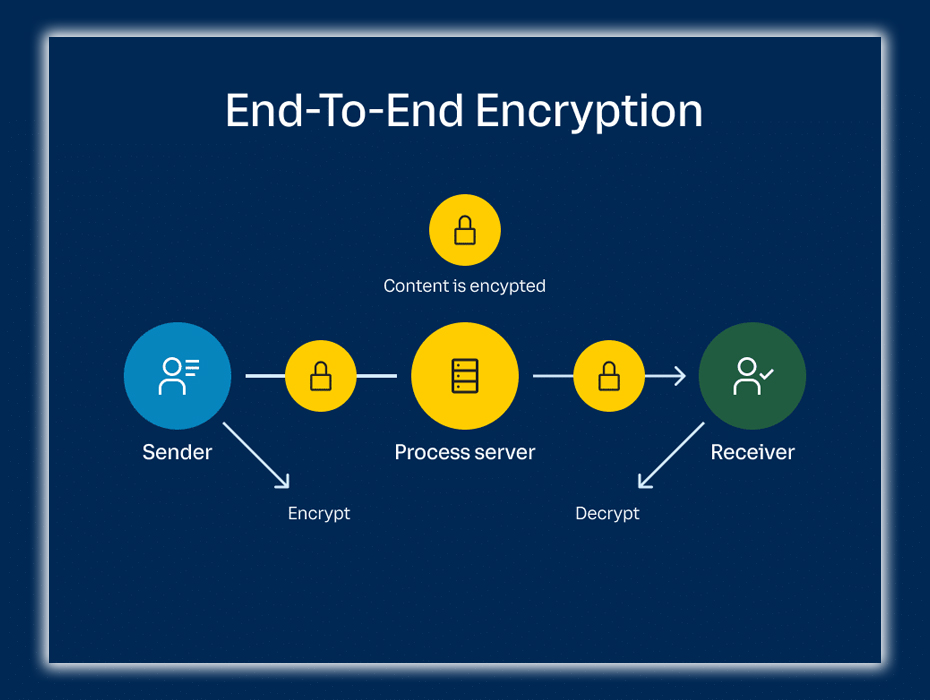
The desire for end-to-end (E2E) encryption isn’t just about those who don’t want the NSA to spy on them. In practice, it’s just about a basic sense that messages should be private. You have to be aware that just because something has the word encrypted doesn’t mean it is end-to-end encrypted. Some services will encrypt the message between the transmission endpoints. Your conversations are stored on the messaging service’s servers. But since they encrypt them, they can’t decrypt them.
The services we’re looking at here all feature end-to-end encryption.
Telegram
One of the most popular apps in this space is Telegram. It’s been a pretty hot app for a couple of years, like 20 years of in-app time. The most specific part is to invite your contacts into your new, secret chat world through the app’s navigation menu. It’s the biggest problem with using over-the-top services, as it doesn’t have the ubiquity of SMS messaging.

Once you’ve done this, you can message people individually or create group channels for talking with an unlimited number of other users. You can escape the limitations of MMS messaging that usually caps, you at a particular number of people. Your group can even be public. Giving you a mini social network without all the trolls that plague the likes of Facebook and Twitter. The interface is a little barren, but Telegram makes a list for its robust privacy offering native apps for iOS, Mac, Windows, the web, and Android.
Signal
Signal’s claim to fame is that it’s the preferred messaging application of Edward Snowden. It’s among the easiest to set up. It automatically authenticates your number and can even be your default SMS app. As with Whisper, you can create a group for private banter with an unlimited number of other users. Signal also makes phone calls, which I found very clear when testing it out in several cases.
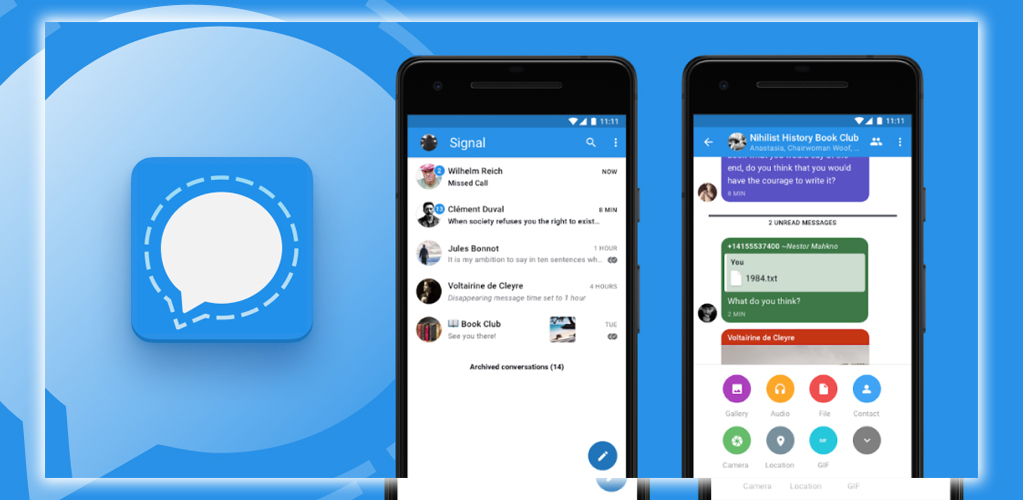
The signal isn’t optimized for tablets, but the company says that’s on the product roadmap. The design is no-frills. With color variations for different contacts to help you from sending the wrong chat to an incorrect connection.
Wire
Another good option is Wire. It offers fun messaging tricks, like doodling, sharing your location, sending images, or recording a video. The app also includes a chatbot, Anna, which offers valuable answers to various questions about how to use the app.
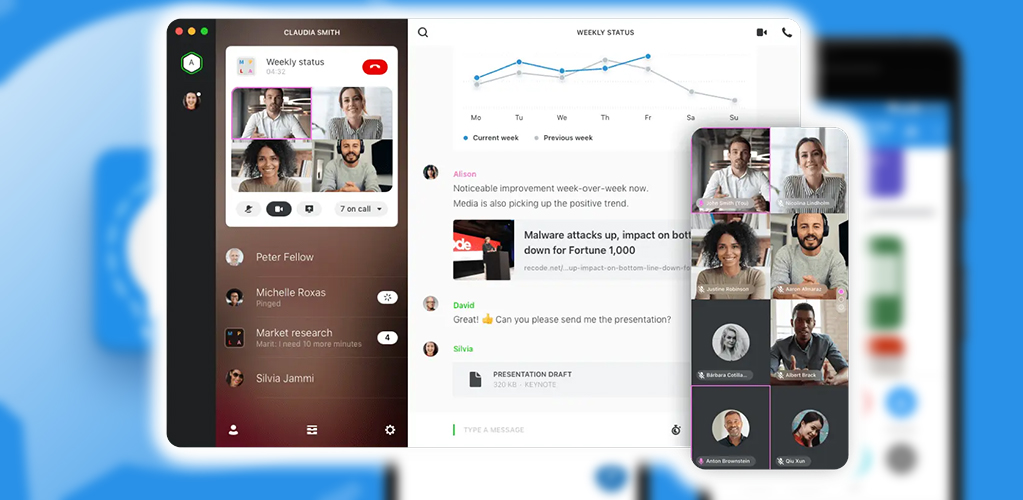
You can optionally create an account with your phone number, which makes setup account deletion easy. The wire is great for one-on-one chats if you prefer conversations with someone to be off the record. But it doesn’t have the same social or group features found with some of the other offerings here.
You also can’t forget about the uber-popular WhatsApp. Like the others on this list, it promises end-to-end encryption, so your messages stay private. The most significant advantage is that the service, owned by Facebook, has over a billion users. There’s a good chance you won’t have to convince all your friends and family to download the app.
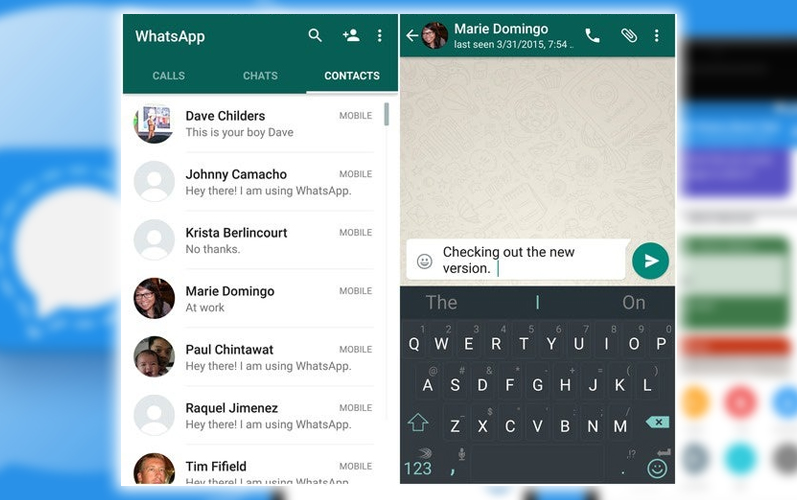
As one of the pains of moving to a messaging service is convincing everybody to jump aboard. On the other hand, WhatsApp is owned by Facebook now. This connection could make some wary, especially since the social network recently announced it’d use some account information, including phone numbers, from WhatsApp. If your goal is a high privacy threshold, it’s worth keeping an eye on.
Dust
If you want to see messages disappear before your eyes, then Dust, formerly Cyber Dust, is the way to go. The brainchild of Dallas Mavericks owner Cuban. The messages can disappear in 24 hours or as soon as they’re read.
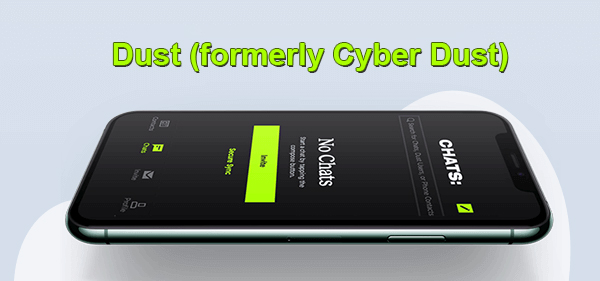
Dust formerly Cyber Dust makes your messages disappear and an interesting social element.
The company spells out its encryption policy in its data policy. It includes a few other features to ease your mind, like chats that don’t show usernames. Even if someone took a screenshot. It wouldn’t necessarily be attributed to you.
The best app for you is going to depend on your needs. Secure messaging is a huge growth area of consumer interest. But it’s worth the effort staying secure is what you’re after.














